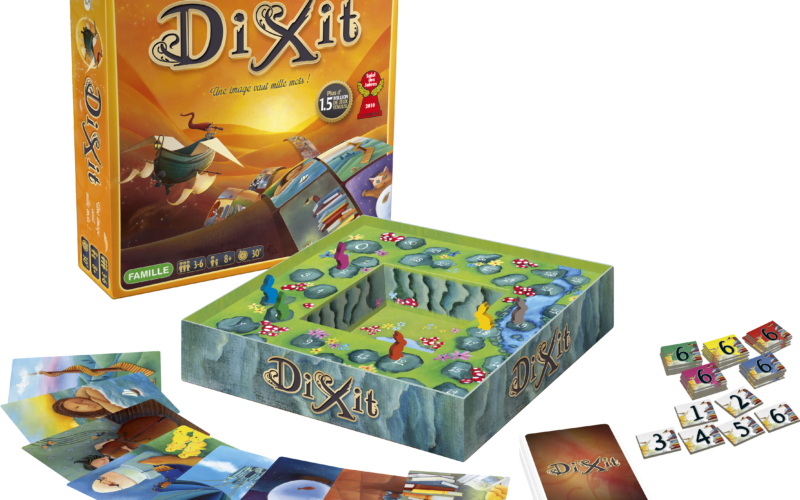In this game you are taking it in turns to be the storyteller. You look at the cards you have, filled with abstract art, and say a word that comes to mind when you look at it. You then place it face down. Everyone else looks at their cards and finds one that matches the chosen word. Placing theirs face down on top of the first card. They then get shuffled together and laid out and the other roosters vote to see if they can figure out which card you placed. If they get it right they score points but if they get it wrong you score them. However, if no one guesses your card then you don’t get any points, so you have to be careful to make it challenging but not too cryptic.

There are plenty of cards and lots of expansions so it’s always going to be a new game every time it’s played. There is another game called Mysterium which uses the same mechanic of abstract art cards but these are used to help the other players identify a murderer in a cluedo inspired game.

Questions to explore character:
1) Were there any choices of cards that surprised you whilst playing? Why?
2) Was it easy to identify other players cards?
3) Why do you think the rules say at least 1 person must correctly guess your card in order for you to score points?
4) Why might people see the cards differently from you?
5) Did you mistakenly pick any cards during the game? Do you think that sometimes you may mistake what other people are saying?

Links to Faith
This has 2 clear links to faith. The first is the story of Joseph, he could interpret dreams that were little more than abstract images. You can use the game to talk about the dreams he talks about in Genesis 37, 40 and 41, Joseph interpreted the dreams as you are trying to interpret the cards in the game. It isn’t easy and there can be many things that look similar but it’s about finding the truth, in the game that truth is about the card that was picked initially, in the dreams it’s about God’s truth.
The idea of God’s truth and trying to interpret it can be used to talk about the reasons why there are so many different denominations of Christianity. The Bible is a complex mix of factual history and metaphor. Even Jesus admits that he doesn’t want to give clear messages to the public, he want them to find the meaning on their own (Mark 4:10-12).
10 Later Jesus was alone. The 12 disciples asked him about the stories. So did the others around him. 11 He told them, “The secret of God’s kingdom has been given to you. But to outsiders everything is told using stories. 12 In that way,
“ ‘They will see but never know what they are seeing.
They will hear but never understand.
Otherwise they might turn and be forgiven!’ ”Mark 4:10-12
This leads to a lot of debate about what the Bible does and doesn’t mean – this debate is what we call theology. Sadly it has led to lots of division and hatred in the world over the past 2 millennia however that isn’t what God intended. St Paul tells us in 1 Corinthians 12:12-26 that we are intended as one body in Christ. We may look at the world differently but that’s because we each have a different, and important, part to play. A foot will never see the world from the same perspective as an eye but that’s doesn’t mean their perspective is wrong, it’s just different. In the game you are trying to identify what was seen in the initial card, but everyone will interpret the cards differently based on many factors. We need to understand that the Bible is the same, and even if something is clear as day to us it may not be to another, and we must always be willing to accept that we may be wrong and they may be right.
Links to buy
Reminder, all Amazon links from this point on (including pictures) are Amazon Affiliate links and will provide me with a slight commission. For more information check the Disclosure page.
All images copyright to Libellud

